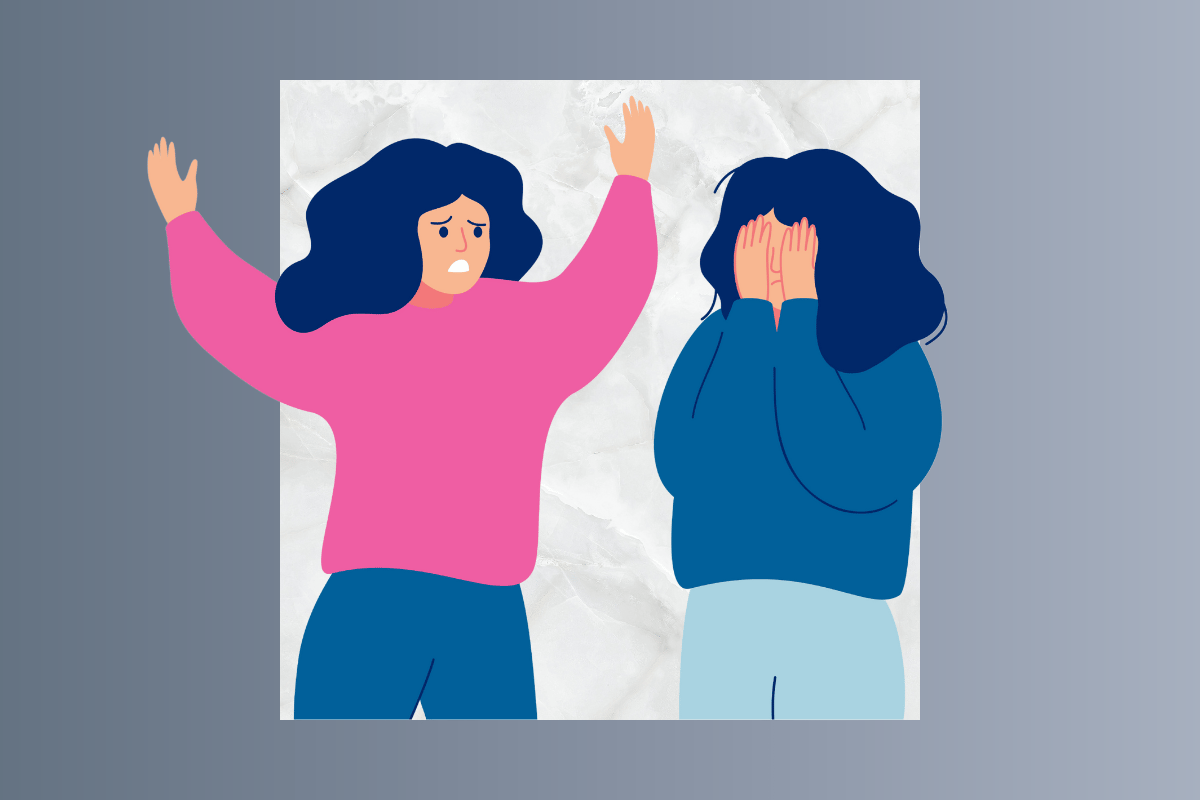
I met *Lindsey at a really odd time in my life.
10 weeks into the seventh grade, mum plucked me out of school against my will and placed me into another. She'd noticed a negative change in me. When she realised I was being bullied, she took action. But I hated her for it, and the world. But mostly, I hated my new school.
It was private and stuck up in a way I had never experienced before. People were nice(ish) but snobby. Their school skirts were below their knees and they carried their textbooks outside of their backpacks.
I hadn’t really made friends yet. I was surveying my options and seeing where I could fit in. And then I met her. Lindsey.
Her skin shone and her eyes were earnest. She was instantly the funniest person I knew. She was kind and sweet and everything about her felt like a light drawing inward. I wouldn't ever admit it to her, but I made that girl my best friend. I shoved my way in so everyone knew she was my person and I was hers.
We were 13 then. Now, I’m 23 and I've only just started realising where it all went wrong.
There's a concept that's been floating around in my brain for a while now. It's called the Fatal Flaw Theory.
According to TikTok, every single person living on this earth has at least one of them.
They can be innocent like being a loud snorer or forgetting to flush the toilet every single time you use the bathroom.
They can also travel into the category of toxic. That person could be a compulsive liar or incredibly lazy.
Fatal Flaws can range from slightly manageable to absolutely unbearable. Fatal Flaws have the potential to ruin friendships.
So when I learned about the Fatal Flaw Theory, everything began to click. Because Lindsey was my best friend. And she, unfortunately, had the most fatal flaw imaginable.
Lindsey was stupid. A bright, brilliant ball of joy with a kindness that was unparalleled. But she was just... not very smart.
Oftentimes, I'd be getting a call at 3am because she had found herself in a particularly scary situation, or we'd be stuck trying to park a car for 25 minutes because she had forgotten what a side mirror was.
In a video that went viral, Tinx, the creator of the Fatal Flaw Theory (later changed to rule) said: "For every close or best friend you have, they have a fatal flaw [that] you have to accept that and not think about it because it’s a part of who they are."
Tinx argues that once you accept their flaw, you can’t get upset about it when it presents itself.
"If your friend does something related to that fatal flaw, you can’t get mad about it because it’s a write-off. [Anything] within the realm of their flaw you just have to accept," she said.
But if you can't accept their flaw? Well, Tinx says you then need to "demote them as a friend and distance yourself".
With my own friend, I had complex feelings about what I believed her fatal flaw was. As a result, I was also forced to come to terms with my own.
I can be incredibly lazy. I have terrible time management. I believe I have lost friends because of these fatal flaws.
While chatting with longevity coach and friendship expert Marcus Pearce, he told me that people are "kidding themselves" if they think the Fatal Flaw Theory doesn't apply to everyone.
"Introverts can be attracted to extroverts as friends. Forgetful people can be friends with someone who is really organised and people that are stingy can have friends that love spending money," he told Mamamia.
"So I don't think that any of us can say that the fatal flaw theory doesn't apply to us. I think what we all would have a different view on is how we apply it and whether we use it."
In explaining my own situation with Pearce, I started from the beginning.
Lindsey and I used to have mind-blowing conversations. We would argue about how stars were made and if God watched us from the sun or the clouds. We cried and were left confused over boys that clearly did not like us. She spilled her secrets to me and I promised not to tell a soul.
Eventually, we grew up. But I felt... ahead of my wonderful, kind friend. I didn't care to speak about the things we used to obsess over. I wanted to make big plans with Lindsey. I wanted us to grow up.
Things reached a boiling point on one New Year's Eve when we were both 19 years old. It was my first time venturing out to the city, and we found ourselves on the train home at 4:30am. A group of boys approached us and begged her (and begrudgingly me too) to come back to a hotel with them.
Scared and very aware it was just us in that train carriage, I did the only think I could think of. I turned to Lindsey and said, "Your dad is waiting for us in the car right? He's already there at the station to pick us up?"
She responded: "No he's not. He's at home asleep. It doesn't matter where we go." The moment is burned in my memory.
I'm not sure how we got home that night – but I think perhaps my incessant crying was enough to make the creepy men go away. But something changed that night. I realised I couldn't trust my friend to be smart enough to get us out of harmful situations.
My resentment kept me awake that night. I thought of all the ways I could slowly ghost the one friend I was sure I would grow old with.
*Names have been changed for privacy.
Feature Image: Mamamia.

